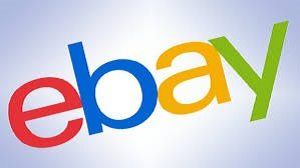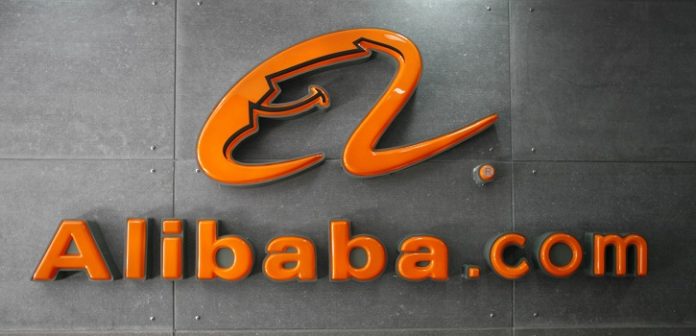Alibaba is presently the leading e-commerce provider in China. Launched in 1999, the company has expanded to take over the e-commerce industry. It offers a wide array of services, including business-to-business services (B2B) and consumer-to-consumer services (C2C), among others. Taobao, its smaller e-commerce site, receives more visits per year than any other website in the world. The success of Alibaba implies that it is ready for an IPO very soon.
The company hopes to continue with its diversification efforts to better serve people and continue to dominate the e-commerce market. Here are a couple of things to know about Alibaba, China’s answer to eBay.
How Does Alibaba Work?
Alibaba is a B2B website that connects suppliers of various products to potential buyers from all corners of the world. Suppliers produce multiple products in large quantities and later sell them to potential buyers.
Alibaba also runs smaller e-commerce websites. These include AliExpress, a B2C company; Tmall, a B2C website, like Amazon; and Taobao, a famous C2C website, like eBay. Companies from most parts of the world can purchase products in bulk for their businesses. They can then distribute them to their customers.
Top-Selling Products on Alibaba

Alibaba’s top-selling products are usually things that allow for mass production. They are sold mostly on a wholesale basis to companies to stock up their inventories. The company’s top-selling products include music systems, clothes, and bracelets.
Alibaba is free to join if a person or company wishes to sell a product or products. However, a basic membership may considerably limit the number of products on display. Additionally, the site limits basic members to promotional tools. That makes it difficult for small sellers that are looking to reach more customers. Therefore, if you are a seller, you should make sure there is a market for your goods.
The platform is mostly used by vendors looking to export various types of goods from China. Nonetheless, things might change soon. It recently announced its plans to invite entrepreneurs from the United States to concentrate on items that target Chinese consumers.
Currently, selling items on Alibaba isn’t cost-friendly to small-scale businesses. Take Tmall, Alibaba’s division that focuses on foreign businesses, as an example. Gold members must pay a total of U.S. $25,000 to act as a security deposit and pay seller fees amounting to U.S. $10,000 per year. That’s not all, verified Gold members also pay about 5 percent of every sale they make to Alibaba.
Alibaba continues to excel and become the most preferred tool by suppliers. But, up-and-coming sellers should know making it to Alibaba’s first page of search results may take many years.
Selling Alibaba Items in the United States
Alibaba has proven to be a great selling tool. eBay sellers find it especially lucrative. They usually want to stock up their inventory through overseas producers. Before purchasing from suppliers, vendors should consider checking both eBay and Alibaba to compare pricing. Companies that compare prices can choose the inventory that will give them huge margins. And, this will give them a good reason to invest before reselling in the United States.
When communicating with possible suppliers through e-mail, there are several things you must ask. Ask about the available shipping options, terms of payment, length of the manufacturing process, and the lowest order quantities. Not all sellers will reply, however. But, vendors can enhance their odds of getting a response by ensuring their questions are short and to the point.
After receiving samples, it is advisable for vendors to examine all the products before bringing them to the market. Importantly, vendors should make note of any damage to any product. Vendors should only offer flawless items to consumers in order to inspire confidence.
How Vendors Stay Protected
Vendors are choosing Alibaba over other platforms because of pocket-friendly costs and a wide range of products and suppliers. But, it is prudent to exercise caution when stocking up from foreign manufacturers.
Vendors can become the victims of schemes. They can suffer from consumer uncertainty, shipping periods that take too long, and no quality assurance. Alibaba has a supplier verification category that seeks to tell the trustworthy suppliers from the untrustworthy ones. In most cases, a third-party carries out various verification activities. It’ll confirm the authenticity of a business’ license, contact the business, and carry out on-site checks on a business’ premises. The third party verifies the suppliers, and Alibaba categorizes them as either Verified or Gold members.
The platform highly recommends Gold Suppliers. It is easy to distinguish vendors with Gold Supplier status from other suppliers. They have a gold logo to indicate that they have passed Alibaba’s highest level of verification.
Alibaba has various services to help U.S. vendors create a foundation of trust. This is especially important when purchasing and trading with suppliers from China. Some of these services are not yet available to supplies from the United States. But, they are handy to retailers who are looking to make deals with Chinese companies.
Some of the services include:
- Inspection service
- Secure payment
- Verified main product
- Customs data
- Trade assurance
Conquering the Language Barrier
Over the years, the language barrier has proven to be the main challenge to global trade. This is why Alibaba already has tools designed to help traders handle the customary communication obstacles. The platform has multilingual websites (about 15). They make things easier for suppliers of various items to communicate better with companies that use languages other than English. The platform is available in Japanese, German, Vietnamese, Arabic, Korean, Spanish, and nine other languages.
Right now, suppliers can make posts using their own languages, including Spanish, Arabic, German, Russian, and Italian, on various sites. On the other language sites, suppliers make posts in English, which Alibaba’s software can automatically translate.
Has eBay Lost to Alibaba?
 At the moment, Alibaba appears to be doing better than any other platform in the industry of e-commerce. The platform has even begun expanding to provide services to the East Asian markets. Its C2C, B2C, and B2B presence has immensely contributed to its success. Leading merchants and brands use the subplatforms to sell products to Taiwan, Macau, and China.
At the moment, Alibaba appears to be doing better than any other platform in the industry of e-commerce. The platform has even begun expanding to provide services to the East Asian markets. Its C2C, B2C, and B2B presence has immensely contributed to its success. Leading merchants and brands use the subplatforms to sell products to Taiwan, Macau, and China.
In addition, this platform owns many other organizations (close to 21), including Taobao. Many people consider Taobao to be China’s answer to eBay. With all these platforms, Alibaba has a powerful presence in the Chinese e-commerce market. Not only does Alibaba dominate the market of e-commerce in China, but it also leads in m-commerce. Presently, Taobao is among the best m-commerce apps in the market of mobile commerce.
In the next 20 years, Alibaba hopes to reach an audience of more than 2 billion customers worldwide. Its expansion into international markets will give it an opportunity to welcome additional sellers from all parts of the world. This will, in turn, improve international inventory for its Chinese buyers.
By expanding its presence to cover more international markets, Alibaba will considerably augment its user base. Most recently, the platform declared that it had made Australia part of its big expansion plan. The aim is to reach as many customers as possible that most retailers are not in a position to reach.
Disclaimer: All images are copyright to their respective owners and are used by USA Online Casino for informational purposes only.










